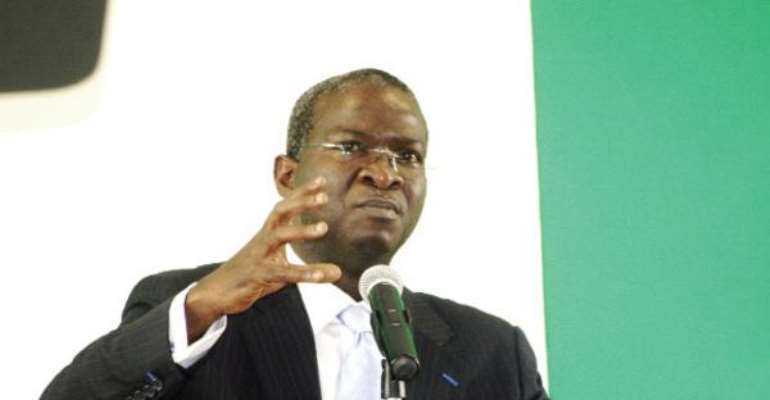Welcome Address Delivered By H.e, Babatunde Raji Fashola, San At The One-day Public Enlightenment On Developments In The Road Sector At Nigeria Air Force Conference Centre, Abuja On Monday 19th march 2018

On behalf of the Ministry of Power, Works and Housing, I welcome you all very warmly to this one day public enlightenment meeting on developments in the road sector.
Especially, I welcome the representative of the President, Boss Mustapha, the Secretary to the Government.
This meeting is critical to the achievement of our common goal for shared prosperity.
It is a meeting to reflect and agree on the need for change about how we have used our Road infrastructure.
Our Economic growth, National productivity and job opportunities will be impacted by the conclusions and resolutions of this meeting.
For example, how do we optimize the opportunities that lie in road networks like Trans-Saharan highway that connects Nigeria to Chad, Niger, Tunisia, Mali and Algeria; the Lagos- Abidjan Highway through Benin, Togo and Ghana, or the Enugu- Cameroon Highway through Abakaliki – Ogoja , Ikom and Mfum.
For the benefit of those who may be unaware there are now existing treaty obligations within the West African sub region and beyond that regulate the amount of load any goods vehicle can put on an axle and by extension on the road in order to do business within ECOWAS and beyond.
I must thank you Mr. President for finally signing the instruments of ratification as soon as it was brought to his attention, after many years of delay prior to his tenure.
Our compliance with these regulations will open a massive door of opportunity and prosperity of cross-border trade to Nigerians engaged in the transport business.
This is why this meeting was convened; because when President Buhari once said that “we will change our habits and we will change Nigeria,” I believe this is one of the things he had in mind.
While it is true that we could have done better by way of massive investment in our transport infrastructure during the windfall of income from oil, this Government is now rapidly and aggressively addressing road transport infrastructure repairs, rehabilitation and construction as many of you who travel regularly will attest.
There is no state in Nigeria today, where you will not see our contractors busy at work.
And I must acknowledge what the State Governments are also undertaking with regard to states and some federal roads.
The crux of this meeting is to first acknowledge the President is only one man who cannot be everywhere, and secondly to recognize that we are the actors of the change that is required to take us to prosperity and thirdly to recognize that, the way we use the roads when finally completed will determine how long they last and whether they deliver prosperity or not.
All over the world, one common thread of prosperous societies is their level of compliance with laws and regulations.
So in those societies, you will see trucks parked in proper parks which creates jobs, and not on the highways, which impede access and opportunity.
In those societies, you will see trucks carrying specified tonnage of cargo because it protects the road, and allows for it to be used again and again.
Therefore, while the temptation to overload and carry more with one truck, against regulation and good practice may be appealing it is ultimately a barrier to prosperity.
Such practices may provide cheap and perhaps corrupt riches and income, but they do more damage to the roads from which the cheap income is made.
This means that in the short run, the road is lost, the opportunities diminish or are lost totally or they become very expensive to access until the road is rebuilt.
The expense and cost to all of us, when the road is damaged by misuse or abuse, manifests in longer travel hours, more fuel consumption, expensive delivery of goods and services which every member of the community including transporters have to bear.
This is not what we want. The process to change this has begun with the construction of roads but it will not be complete unless we embrace change.
We must now hearken to our President and some common sense by resolving from this day to change ourselves, about how we use our roads and transport infrastructure.
Our Ministry is convinced that voluntary compliance by stakeholders takes us further and nearer to the prosperity that is beckoning; and this is why we convened this meeting before the process of enforcement commences.
We are pleased with your enthusiastic attendance and look forward to your commitments to voluntary compliance.
Ladies and gentlemen, I thank you very much for your attendance, and in anticipation of your active participation as we continue to engage later today and beyond.
Babatunde Raji Fashola, SAN
Honourable Minister of Power, Works and Housing
Monday 19th March 2018
